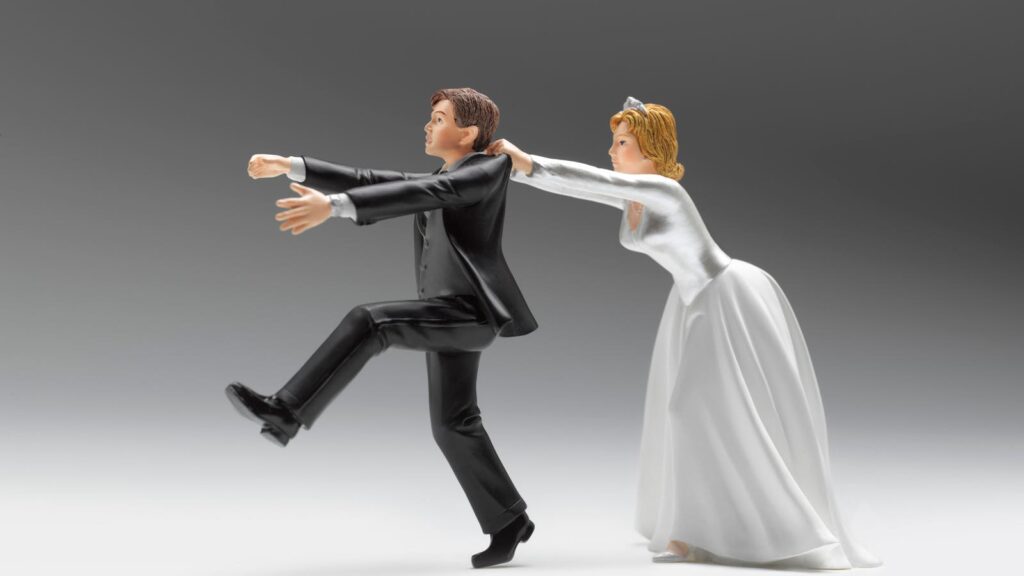
Title: The ‘Fear Of Marriage’: What’s Behind It?
As a psychologist, I’ve noticed a concerning trend among many individuals who express fear or reluctance towards marriage. While societal pressures and cultural norms undoubtedly play a significant role in shaping these sentiments, research suggests that individual factors like upbringing, attachment styles, and personal values also contribute to this phenomenon.
Reason #1: Fear of Loss of Autonomy
New studies reveal that the quality of family dynamics during childhood significantly influences attitudes toward marriage. In particular, families that emphasize independence and autonomy foster young adults with a healthier outlook on relationships. Conversely, those who experience a lack of autonomy growing up may develop negative views about how future relationships might continue to be stifling. This internal conflict can lead to a fear of marriage as a means to maintain personal freedom.
Reason #2: Avoidant Attachment Style
Research in attachment theory indicates that early experiences with caregivers have a lasting impact on our approach to close relationships. Individuals exhibiting an ‘avoidant’ attachment style, often stemming from inconsistent or emotionally distant caregiving during childhood, tend to fear intimacy and dependence. As a result, they might view marriage as a potential loss of self or vulnerability to emotional harm.
Avoidantly attached individuals may prioritize independence over connection, believing that a partnership would compromise their autonomy. They may struggle with trust and emotional vulnerability, fearing their partner will eventually hurt or abandon them. Thankfully, attachment styles are not fixed; with self-awareness and effort, it’s possible to develop a more secure attachment style.
Reason #3: Societal Pressures
While societal expectations undoubtedly contribute to the fear of marriage, I believe it’s essential to acknowledge that this anxiety can be reframed as an opportunity for growth. Rather than being confined by traditional norms or pressures, individuals should strive to reevaluate their values and desires. It is crucial to recognize that marriage is a personal choice, not an obligatory milestone.
In conclusion, the fear of marriage stems from a complex interplay of factors, including childhood experiences, attachment styles, and societal pressures. By addressing these underlying concerns through self-reflection, open communication with partners, and reframing traditional narratives, we can transform fear into confidence and create a more empowering perspective on lifelong partnerships.
What are your thoughts on this topic?
Source: www.forbes.com


